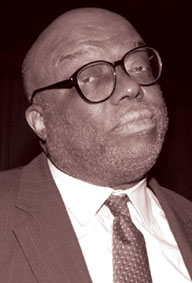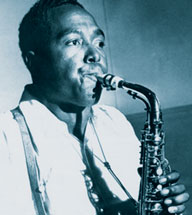
By Ethan Iverson, Source NPR

Stanley Crouch, the lauded and fiery jazz critic, has died. According to an announcement by his wife, Gloria Nixon-Crouch, Stanley Crouch died at the Calvary Hospital in New York on Wednesday, following nearly a decade of serious health issues.
Crouch was born in Los Angeles on Dec. 14, 1945. He read voraciously, watched the Watts riots up close, took up jazz drums, published Black Nationalist poetry, led guerilla-theater troupes and taught literature at Pomona College, all before moving to New York in 1975 and becoming a cultural critic at the Village Voice. His first collection, Notes of a Hanging Judge: Essays and Reviews, 1979-1989, is a classic of American letters, with disquisitions on diverse topics like Jesse Jackson, filmmaker Ousmane Sembene and painter Bob Thompson, before wrapping up with a panoramic diary of the Umbria Jazz Festival in Italy. The volume got wide play, was a finalist for the National Book Critics Circle Award for criticism, and established Crouch as a force to be reckoned with. Later books included a novel, Don’t the Moon Look Lonesome?, which received a close read from John Updike in the New Yorker, and a well-received biography, Kansas City Lightning: The Rise and Times of Charlie Parker. His many honors included a MacArthur Foundation “genius” grant and a NEA Jazz Masters Fellowship.
After publicly renouncing Black Nationalism in 1979, Crouch strove to place himself in the tradition of Ralph Ellison and, especially, Albert Murray, thinkers through which the idea of embracing Blackness and embracing American-ness became one and the same. Crouch felt he was extending Ellison’s and Murray’s work when attacking important artists, such as Spike Lee and Toni Morrison, for “doing the race thing.” At the same time, Crouch fought for what he considered a Black aesthetic in jazz, and his


Be the first to comment